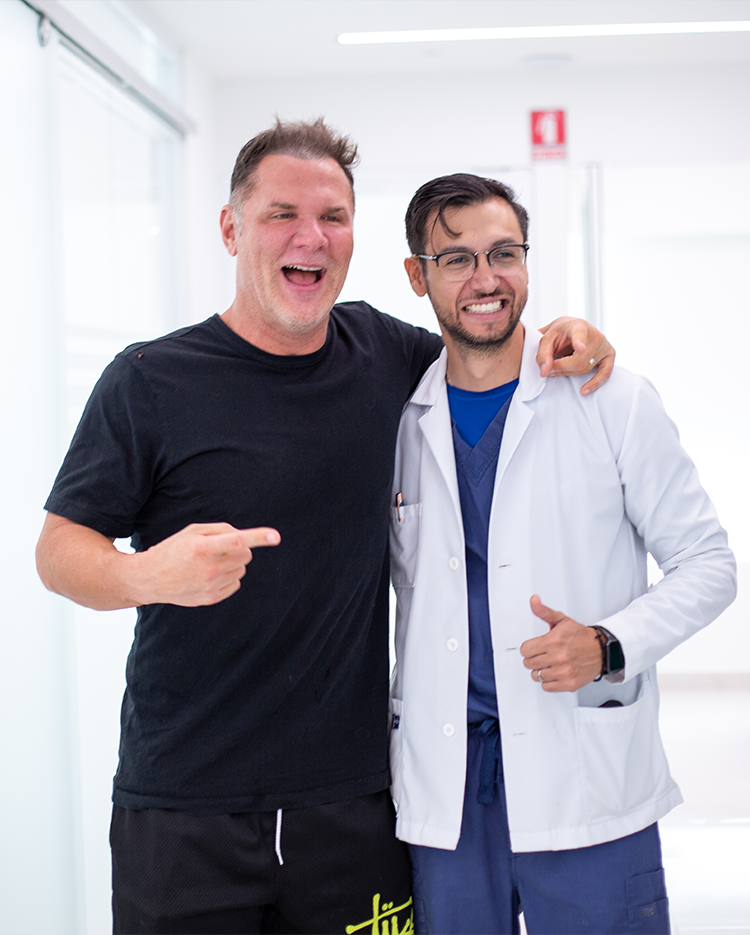The immune system is connected to nearly every organ and tissue in the human body and most people don’t realize that nearly every disease is impacted by immune dysfunction. One of the immune system’s main functions is to protect the body from attack of foreign invaders including viruses, bacteria, mold, and toxins1. The capacity to distinguish between “self” and non-self” substances plays a central role in the process of immunity[2,3]. All autoimmune disorders are the result of the breakdown of this “self”-tolerance, where the body starts attacking its own healthy tissues4.
70%
Improvement in Fatigue
Patients undergoing regenerative therapies report a 70% reduction in fatigue within four weeks of treatment.
60%
Reduction in Inflammation
Clinical trials show regenerative therapies reduce inflammation markers by 60% improving joint health and mobility.
80%
Enhanced Quality of Life
Autoimmune disease patients report an 80% improvement in their overall quality of life after personalized cellular therapies.
2x
Faster Recovery Rates
Regenerative medicine enables patients to recover twice as fast compared to conventional therapies.
Autoimmune Diseases
Affecting Millions
Affecting Millions

Autoimmune Treatments
Over 1 million patients have received autoimmune therapy treatments, showcasing remarkable progress globally.

Success Rate
Rehealth therapies report a 90% success rate in improving quality of life for autoimmune patients.

Noticeable Improvements
Patients often report noticeable improvements in autoimmune symptoms within just 7 days of treatment.

Revolutionizing autoimmune care
Autoimmune diseases encompass 80-100 different debilitating conditions, leaving millions of patients grappling with a deteriorating quality of life. These diseases currently have no cure, and many patients do not respond to the harmful immunosuppressive drugs available. Existing pharmacological treatments primarily suppress the immune system to delay organ damage but fail to address the root cause—dysregulated immune activity. Moreover, these drugs are often accompanied by severe side effects, compounding the challenges faced by patients.
Enter Umbilical Cord Lining Stem Cells (ULSCs)—a groundbreaking, all-natural solution offering new hope in the battle against autoimmune disorders. Unlike traditional treatments, ULSCs possess unique properties that regulate and strengthen the immune system. They act as immune system architects, secreting molecules that bolster the body’s "T-cell soldiers" to restore its defense capabilities. These remarkable cells also neutralize harmful agents targeting naïve T cells, or “soldiers in training,” ensuring long-term immune health.
Our Precision Stem Cell Therapy redefines the approach to autoimmune care. By halting pathological immune responses and preserving the body’s natural disease-fighting ability, this therapy drastically reduces inflammation and strengthens the immune system. Patients report noticeable improvements in symptoms, achieving a healthier and more resilient state of well-being.
This revolutionary therapy is not just a treatment—it’s a transformation, offering a brighter future for those battling autoimmune diseases.








“I’ve seen more improvement in the last year in my healing process than I had in the previous 4-5 years. Undeniable. Overall improvement in energy levels, pain levels, deep sleep levels – pretty much everything across the board. A reduction in frailty from years of being sick.
I’m really happy with the results. It’s been great.”
- Haque N, Ramasamy TS, Kasim NHA. Mechanisms of mesenchymal stem cells for autoimmune disease treatment. In: Pham P. (eds). Stem cell transplantation for autoimmune diseases and inflammation. Stem Cells in Clinical Applications. Springer, Cham. 2019.
- Rioux JD, Abbas AK. Paths to understanding the genetic basis of autoimmune disease. Nature. 2005. 435:584.
- Yang SH, Gao CY, li L, Chang C, et al. The molecular basis of immune regulation in autoimmunity. Clin Sci. 2018. 132(1):43-67.
- Rosenblum MD, Remedios KA, Abbas AK. Mechanisms of human autoimmunity. J Clin Invest. 2015. 125(6):2228-33.
- Chandrashekara S. The treatment strategies of autoimmune disease may need a different approach from conventional protocol: a review: Indian J Pharmacol. 2012. 44(6):665-71.}
- Gao F, Chiu SM, Motan DAL, et al. Mesenchymal stem cells and immunomodulation: current status and future prospects. Cell Death Dis. 2016. 7:e2062.
- Kimbrel EA, Kouris NA, Yavanian GJ, et al. Mesenchymal stem cell population derived from human pluripotent stem cells displays potent immunomodulatory and therapeutic properties. Stem Cells Dev. 2014. 23(14):1611-24.
- Ganguly D, Haak S, Sisirak V, Reizis B. The role of dendritic cells in autoimmunity. Nat Rev Immunol. 2013. 13(8):566-77.
- Sozzani S, Del Prete A, Bosisio D. Dendritic cell recruitment and activation in autoimmunity. J Autoimmun. 2017. 85:126-40.
- Gebler A, Zabel O, Seliger. The immunomodulatory capacity of mesenchymal stem cells. Trends Mol Ther. 2012. 20(1):187-95.
- Shlomchik MJ. Activating systemic autoimmunity: B’s, T’s and tolls. Curr Opin Immunol. 2009. 21(6):626-33.
- Summers SA, Hoi A, Steinmetz OM, et al. TLR9 and TLR4 are required for the development of autoimmunity and lupus nephritis in primate nephropaty. J Autoimmun. 2010. 35(4):291-8.
- Flodstrom-Tullberg M, Bryceson YT, Shi FD, Hoglund P, Ljunggren HG. Natural killer cells in human autoimmunity. Curr Opin Immunol. 2009. 21(6). 634-40.
- Fogel LA, Yokoyama WM, French AR. Natural killer cells in human autoimmune disorders. Arthritis Res Ther. 2013. 15(4):216.



